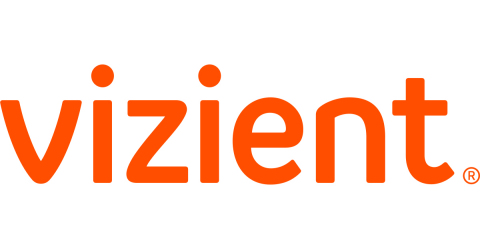CORRECTING and REPLACING Vizient Connections Education Summit Celebrates Members, Provides Insights in Sustainable Quality and Offers a Look Ahead to the ‘New Normal’ in Health Care
CORRECTING and REPLACING Vizient Connections Education Summit Celebrates Members, Provides Insights in Sustainable Quality and Offers a Look Ahead to the ‘New Normal’ in Health Care
IRVING, Texas--(BUSINESS WIRE)--First paragraph, last sentence should read:The conference was held online and in person Nov. 15-18 in Las Vegas. (instead of The conference was held online and in person Sept. 15-18 in Las Vegas.)
The updated release reads:
VIZIENT CONNECTIONS EDUCATION SUMMIT CELEBRATES MEMBERS, PROVIDES INSIGHTS IN SUSTAINABLE QUALITY AND OFFERS A LOOK AHEAD TO THE ‘NEW NORMAL’ IN HEALTH CARE
At its annual Education Connections Summit, Vizient, Inc. celebrated its member health care organizations for their work in caring for patients during the pandemic and provided insights in how to sustain top performance in quality and accountability. In addition, the Summit offered perspectives on potential systemic changes in patient-provider interactions that organizations should prepare for as well as a discussion on the future of payer and payment determinations. The conference was held online and in person Nov. 15-18 in Las Vegas.
More than 2,000 individuals from Vizient member health care organizations registered for the hybrid event, which offered educational content that qualified for continuing education credits, peer-to-peer networking and connected the health care professionals to the more than 800 registrants from supplier organizations for additional networking opportunities. This year, the Vizient Connections Education Summit provided 85 accredited continuing education sessions, 189 education presenters, 57 posters and 121 poster presenters.
One of the highlights of the event was a presentation by David Levine, MD, FACEP, Vizient group senior vice president, advanced analytics and data science, on findings from the study, “Quality and Accountability Continuing the Quest of Excellence,” which details the unique practices of organizations that have sustained top performance in Vizient’s Quality and Accountability ranking over a long period of time. The rankings measure annual performance across five domains: safety, mortality, effectiveness, efficiency and patient centeredness and equity.
Results from the study found that health care organizations who were able to sustain high levels of performance were intently focused on the following five areas:
- People: A broad and deep understanding of how each person, from the Board room to the bedside, is vital to solving problems and ensuring the best patient experience
- Processes: Clinical practice is grounded in transparent data and evidence-based practices are hardwired into daily operations and implementation is reviewed daily at the unit and department level
- Decisions: At all levels of the organization decisions are made based on delivering the best patient experience and staff empowerment
- Board support: The Board plays a strong role in creating accountability. They know the metrics, and have expectations about achievement of goals for quality and safety performance
- Consistent goals and reliable metrics: Goals are easy to understand and are measured and monitored daily/weekly/monthly to create alignment and accountability
"Sustaining top performance requires strong and visible leadership at the top of the organization. They set goals that are easy to understand and connect to across all levels of their organization. These goals are monitored and measured on a regular basis to create and sustain alignment and accountability," Levine said. "We find that organizations that routinely provide data are more likely to sustain their advancement in improvement."
In addition, Tom Robertson, executive director of the Vizient Research Institute, offered a provocative view of health care’s vulnerability to disruption and of the possible long-term economic impact of the pandemic. Robertson presented a combination of his 2019 and 2020 studies. The 2019 study, “A New Look at an Old Business Model: Viewing Disruption Through a Different Lens,” identified inherently vulnerable components of the traditional business model, from a dangerous dependence on private sector surgery to an ambulatory care infrastructure reliant on enormous low acuity volume for its financial success. Those dependencies were exposed during the pandemic.
The Institute’s 2020 study, “Defying Gravity: What if not Everything Returns to Normal?” examined short-term microeconomic impacts of COVID while focusing attention on potential long-term systemic changes — including how providers are paid — areas where the risk of disruptiveness is high and organizational preparedness is low.
“We began our most recent study asking, ‘What if not everything goes back to normal?’” Robertson said. “But we concluded by asking a more compelling question: What if not everything should?”
About Vizient, Inc.
Vizient, Inc. provides solutions and services that improve the delivery of high-value care by aligning cost, quality and market performance for more than 50% of the nation’s acute care providers, which includes 97% of the nation’s academic medical centers, and more than 20% of ambulatory care providers. Vizient provides expertise, analytics and advisory services, as well as a contract portfolio that represents more than $110 billion in annual purchasing volume, to improve patient outcomes and lower costs. In 2021, Vizient acquired Intalere, which expanded its footprint with ambulatory and rural acute care providers. Vizient has earned a World’s Most Ethical Company designation from the Ethisphere Institute every year since its inception. Headquartered in Irving, Texas, Vizient has offices throughout the United States. Learn more at www.vizientinc.com.
Contacts
Donna Ledbetter
(972) 830-6321
donna.ledbetter@vizientinc.com
